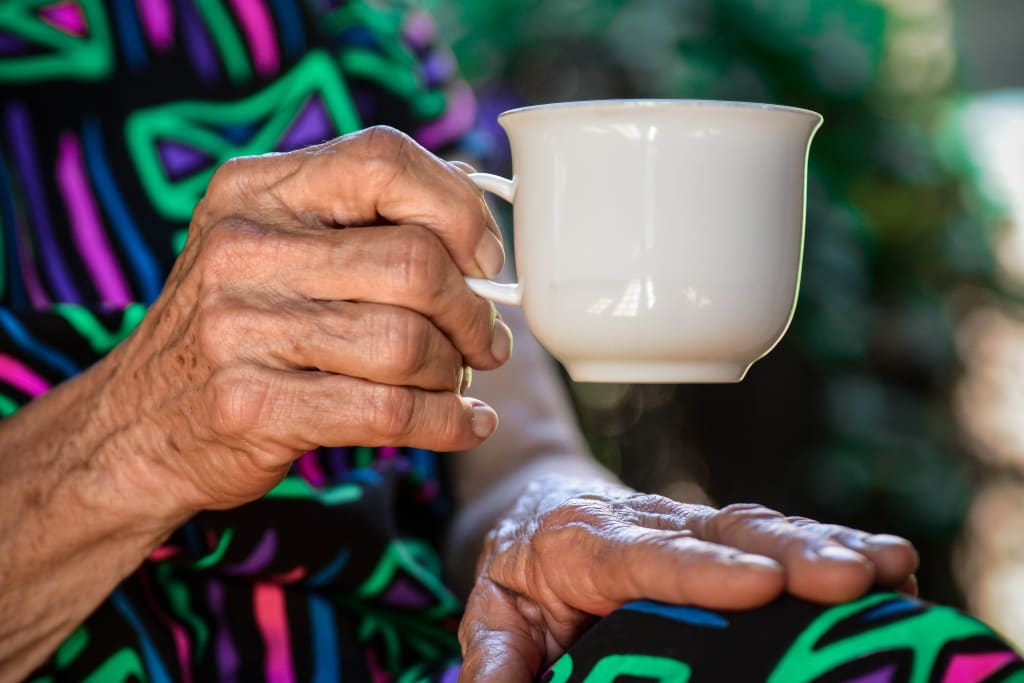Choice of death or choice of life?
Physician assisted suicide in Canada, what needs to be done.

Would you rather have a pain-free life (expensive) or a pain-less death (cheap)?
Can you afford it?
In this paper, I will argue whether physician-assisted suicide in Canada is ethically permissible or not. Medical assistance in dying also known as MAiD has been unethical for centuries and is disregarded in the Hippocratic Oath with the phrase “First, do no harm”. After thorough research into the ethics of physician-assisted suicide, I believe that MAiD in Canada is ethically permissible. However, it should not hinder the advancement and increasing accessibility of palliative care. I will start this paper by presenting the best rational argument in favour of MAiD, then I will write about major ethical issues that come with physician-assisted suicide and lastly, I will compare the arguments and prove that the balance is tipping in favour of MAiD.
The most significant concern of not allowing MAiD is discrimination towards the disabled and this is a worthy ethical argument because it suggests that since suicide is legal, some patients may be disabled to the extent that they cannot commit suicide and so MAiD would solve this problem. Furthermore, this also suggests that some wish to commit suicide before they are substantially disabled. This argument is most powerful in favour of physician-assisted suicide because it is one of the primary reasons which led to the change in policies in Canada. A letter from Colebrook who is the chair of Voluntary Euthanasia Society writes to Cicely Saunders “I still feel that there would be little or no problem of euthanasia…you have done so much to create –but alas that can hardly be for many a long year and meanwhile, how many thousands will end their lives in very different circumstances?” (Saunders, pg. 281). The letter says that if there is no knowledge about palliative care and MAiD is illegal, then there is no way available to tackle the pain the patient endures. Therefore, I believe that if certain scenarios are met, then providing MAiD would be reasonable. Also, as Dan Brock writes, “For many patients near death, maintaining the quality of one’s life, avoiding great suffering, maintaining one’s dignity, and, ensuring that others remember us as we wish them to become of paramount importance and outweigh merely extending one’s life” (Brock, pg. 205). Brock is referring to the same problem as Colebrook but calls it dignity. It is important for those who are critically ill that they maintain their self-respect. I believe that palliative care facilities are a place where the patient’s dignity is maintained by the surrounding environment. Moreover, there is a profound argument which states that if people are incapable of performing activities that give them joy then life is not worth living. This was the major reasons to undergo MAiD in Canada in 2016, a research paper shows “For people who had assisted deaths, disease-related symptoms were given as the first or second most important reason for requesting assisted death…55 (49.1%) gave loss of ability to enjoy activities, and 27 (24.1%) gave fear of future suffering.” (Wiebe, pg. 674-679). This issue is becoming increasingly insignificant as in Canada, recently there has been an improvement in this area of concern, Bill C-81: The Accessible Canada Act, this bill would make Canada barrier-free, it will allow disabled individuals to conduct almost all activities they used to do in their day-to-day lives with no barriers. So far, I have argued that along with MAiD the development of palliative care must not stop because suicide should not be the only option when dealing with pain from symptoms, now I will list central arguments against the legalization of MAiD.
The most compelling argument against physician-assisted suicide is that it may lead to a slippery slope. So, this argument states that there may be misuses of this legalization, for example in the worst-case scenario hospitals could advise using MAiD, not for the benefit of the patient but to clear beds and make them more money. Brock explains this fear as he writes “the central concern of many opponents of euthanasia and, I believe… the most serious objection to a legal policy permitting it [is the] “slippery slope” worry [that], although [voluntary] active euthanasia may be morally permissible… it should still not be permitted because doing so would result in its being performed in other cases in which it is not voluntary and would be wrong” (Brock, pg. 212) Moreover, because the accessibility of MAiD in Canada is not clearly defined, as part of the eligibility of medical assistance in dying it is written that “they have a grievous and irremediable medical condition” (Stumpf L8, S64). Patients may use this to their benefit and undergo physician-assisted suicide even when they are not terminally ill. There can be irrational reasons for undergoing MAiD acceptable in the court of law, such as not being able to play a sport because of obesity or broken bones. However, I believe this argument is not valid as with any new legislation, it needs to evolve, and it is sometimes impossible to see all the minor errors without implementing it. So, what I believe is that this may lead to a slippery slope initially, but with time, this practice can be conditioned and be able to stop the misdeeds from occurring. Another major argument against physician-assisted suicide is the lack of knowledge about alternative care facilities which can control the symptoms. Such facilities could be palliative care and nursing homes. In the bill of rights, Canadian citizens have the right to information, and thus society and specifically health care professionals have the duty to provide us with all the options when making crucial decisions. I want everyone in that situation to not only be provided with the information but also to make it highly accessible, so there should not be any external factors such as financial burden stopping them from getting any care they require. As Brock says, “All reasonable alternatives must have been explored for improving the patient’s quality of life and relieving any pain and suffering” (Brock, pg. 213). Overall the best argument against MAiD states that we should implement the right to live with high quality of care before the right to physician-assisted death, or else we may look towards a dangerous slippery slope.
There are brilliant arguments from both sides, as I wrote earlier that I would want to see MAiD available in the way it is done in Canada, with the condition of making other types of care highly accessible such as palliative care. However, there are some arguments from either side of the debate that are not acceptable and very biased. One of which is the religious arguments made in which the body is considered sacred and taking it is a grave sin. I cannot understand how this view can be forcefully implemented on those who have different beliefs or those who are atheists. I believe the central arguments for the legalization of MAiD outweigh the points made by the opposing side. I will explain my rationale by rephrasing the letter written by Colebrook to Saunders, the patients who do not know about palliative care will have no option other than to endure the pain caused by the symptoms if MAiD is not legalized. We also consider this discrimination towards the disabled. I also completely agree with the opposing idea that we should explore palliative care before MAiD is made available, however in the current situation, there is a lack of palliative care facilities and an enormous waiting list. Along with those problems, nursing homes have major issues regarding the quality of care. As Sandra Johnson writes, “While administrators have a professional obligation to protect the facility, ethical duties to residents’ well-being supersede their management responsibility. Because of their influence on care, administrators cannot defer that ethical obligation to professional caregivers.” (Johnson, pg. 38) The slippery slope argument is not a great argument as I mentioned earlier, this is because the way Canada is implementing MAiD, there are a lot of gray areas that can lead to misuses of MAiD but they are important to protect the physicians. As Kluge explains this “There is the danger that…non-voluntary euthanasia will become the justification for killing the unwanted population, for emptying hospital beds or for ridding ourselves of people whom we consider undesirable…. [T]he legal process would provide the safeguard that what is ethically acceptable per se would not be misused” (Kluge, pg. 214) To put it briefly, physician-assisted suicide should an option at the end-of-life stage, but palliative care should be implemented before MAiD and this would make it ethically permissible.
In conclusion, I think it is ethically permissible to allow MAiD without creating obstacles for the advancements in palliative care. I have defended my argument by stating the need for MAiD is necessary especially when there is no other option available, if not provided then the patient will need to suffer pain before eventual death. In the essay's start, I wrote that for a long time MAiD was considered immoral, but we must remember that the nature of medicine has also changed, it had a paternalistic approach, where the physician had the most power with end-of-life decisions, however, now the patient input is equally, if not more important to conduct any procedure. MAiD is a step in the same generic direction where the patient has greater control of his medical plans. Both sides agree, end-of-life care in Canada has become a game of options, and sadly but surely, those who have more money get more options.





Comments
There are no comments for this story
Be the first to respond and start the conversation.